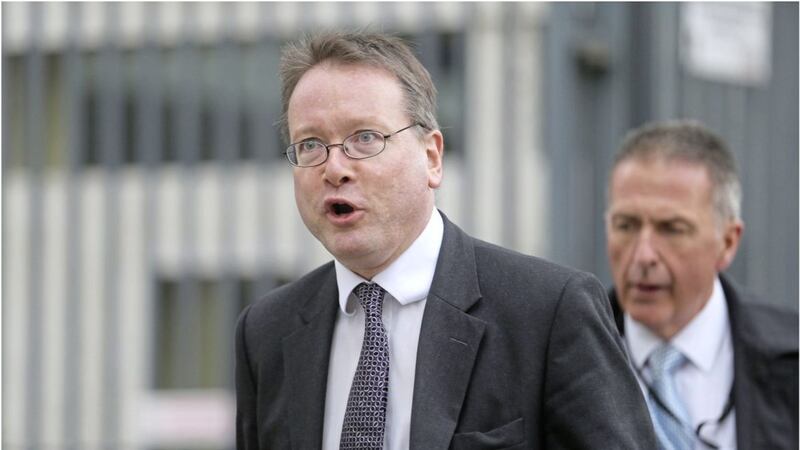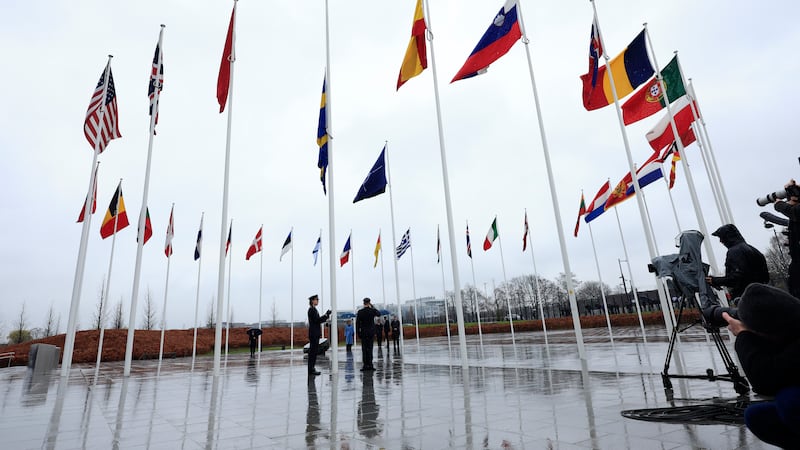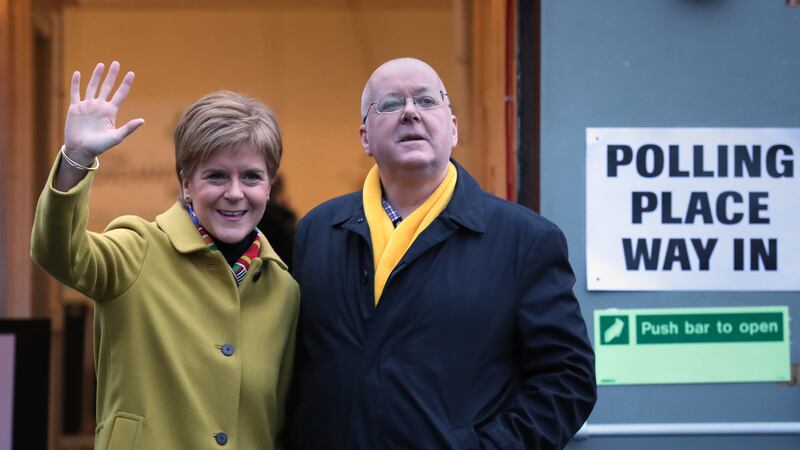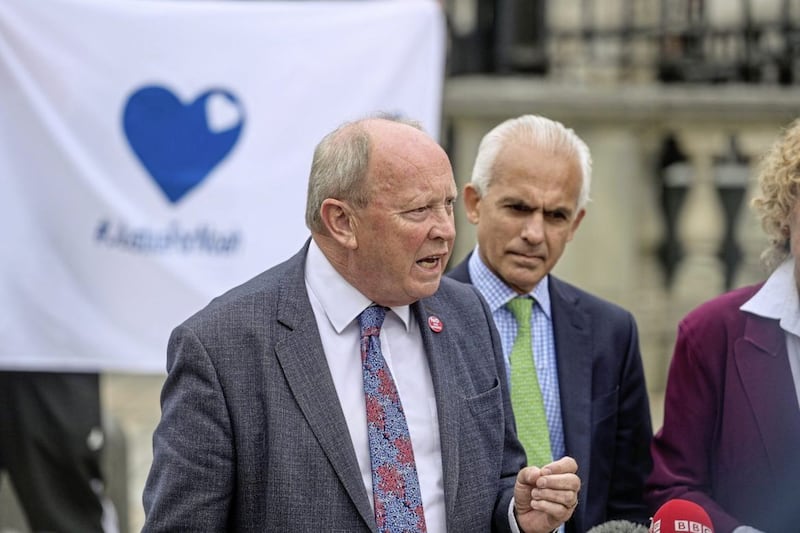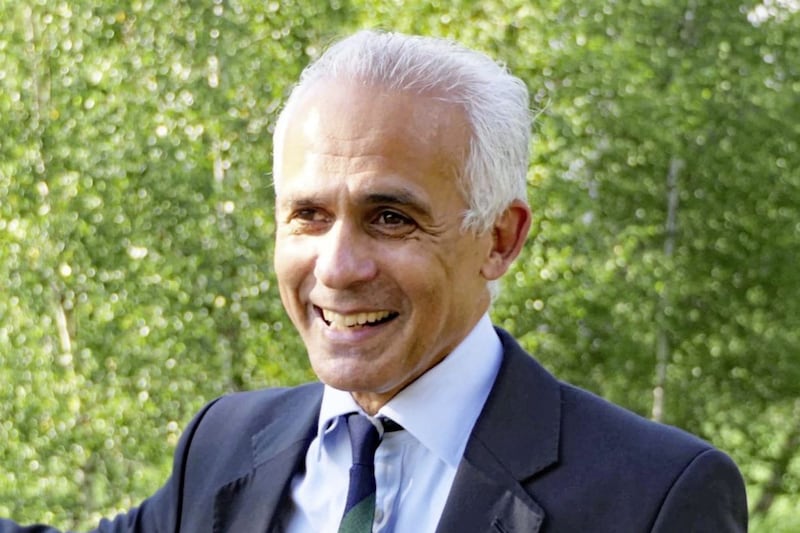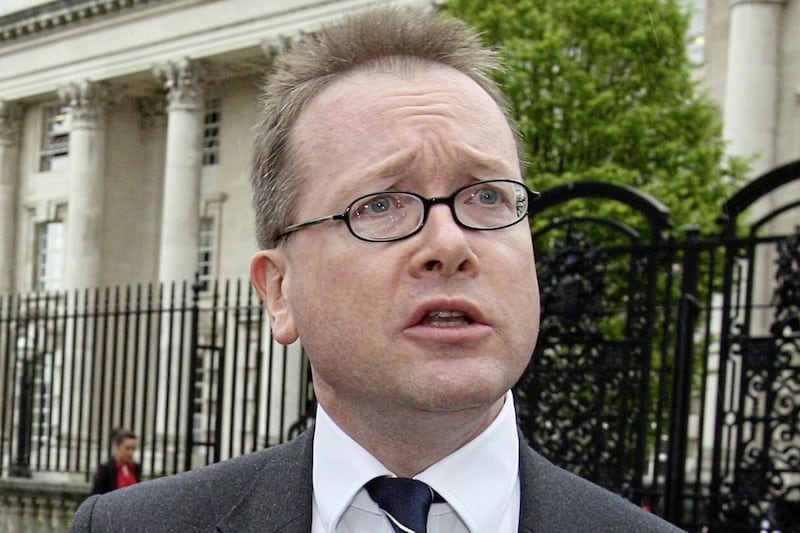The Attorney General's office have said John Larkin's appearance in front of the Supreme Court was "independent" and that he was not representing the Northern Ireland Executive at the proceedings.
The Attorney General, who also acts as Stormont's main legal advisor, used his time before the Supreme Court to speak in support of the British Government's position when it comes to leaving the European Union.
Mr Larkin told the supreme court on Tuesday that that none of the legislative or "constitutional arrangements underpinning devolution" should stand in the way of the UK government triggering Article 50.
He told the court in London that the decision to notify the EU of the UK's intention to leave will "amend not a comma or a full stop of the 1998 Act".
He was part of a notice party of individuals who were deemed to have an interest in the case, as such Mr Larkin asked the judges permission to participate at the landmark Supreme Court hearing.
His performance was criticised by some commentators, including by the Guardian who have taken a remain stance in relation to Brexit.
SDLP leader Colum Eastwood also question Mr Larkin's position saying it was "utterly bizarre" given the majority of people in Northern Ireland voted to remain in the EU.
Mr Larkin's stance in support of Theresa May also echoes Arlene Foster but was in direct conflict with those of Sinn Féin and deputy first minister Martin McGuinness, despite Mr Larkin being appointed by the joint Executive office.
Mr McGuiness has previously said any attempt to drag the North out of the EU "represents a fundamental change in the constitutional position and an undermining of the spirit of the Good Friday Agreement".
A spokesperson for Mr Larkin's office said yesterday; "The cases before the Supreme Court originating from Northern Ireland require the court to determine ‘devolution issues’ under the Northern Ireland Act 1998.
"After Mr Justice Maguire gave judgment in the Northern Ireland cases, the Attorney General exercised his power under paragraph 33 of Schedule 10 to the Northern Ireland Act to require the judge to refer a number of questions arising from the ‘Agnew and others’ case to the Supreme Court.
"In his view the questions raised issues of great importance and consideration by the Supreme Court was appropriate.
"The Court of Appeal referred one further question arising from the McCord (Raymond) case to the Supreme Court.
"The Attorney General is statutorily independent of the First Minister and deputy First Minister, the Northern Ireland Executive and the Northern Ireland Departments, and is not representing the Northern Ireland Executive in these proceedings".
Sinn Féin MLA John O'Dowd said last night that it was "disappointing that the Attorney General has inserted himself into the case and promoted a position that stands in contravention of the express will of the people of the north.
"However, I'm sure the irony of the current SDLP leader talking about anyone abdicating responsibility will not be lost on people since the SDLP ran away from responsibility at the Executive and abandoned all-Ireland bodies.
"We will not be lectured by Mike Nesbitt's deputy but instead we will continue to work in the Assembly, on the Executive, in Dublin, London and Brussels to ensure the vote of the majority in the north is respected and to secure designated status for the north within the EU", he added.
Last night MPs overwhelmingly backed Theresa May's plans to trigger the process for quitting the European Union by the end of March next year on condition the British prime minister reveals her strategy.
Mrs May took the wind out of a potential Tory rebellion in the symbolic Commons vote after conceding on Tuesday to set out the direction Brexit negotiations will take and explicitly challenged members of all parties to support the timetable for activating Article 50.
